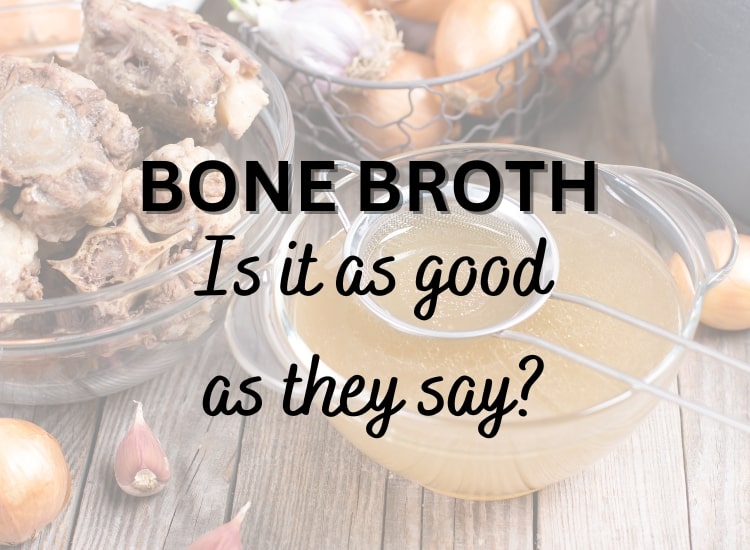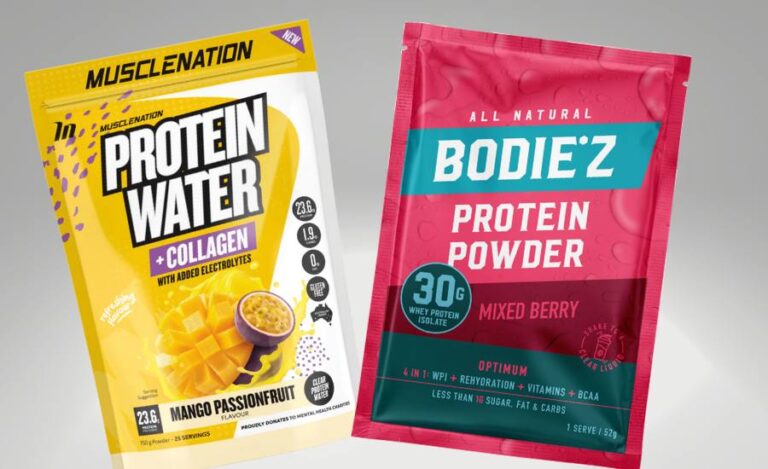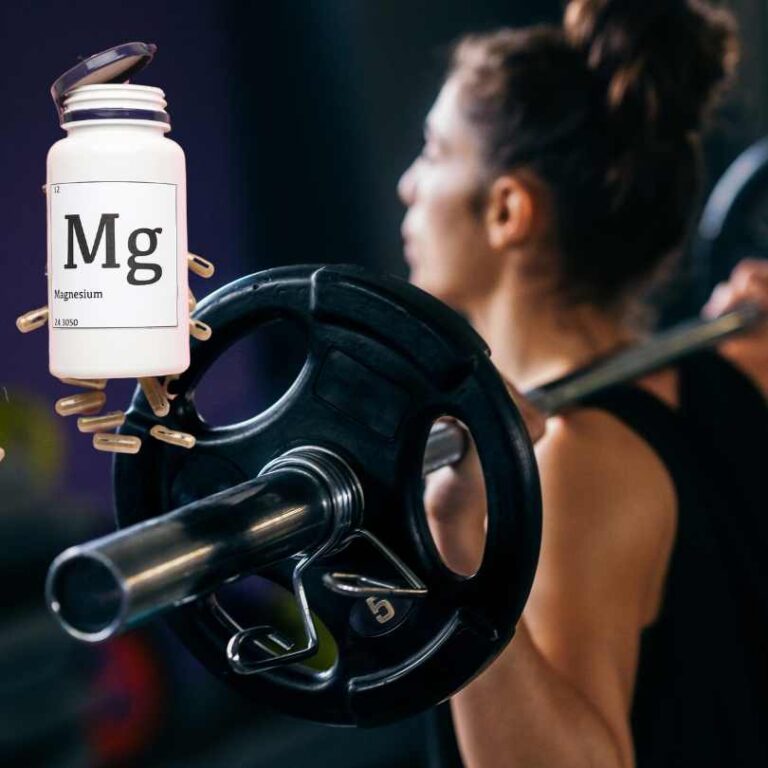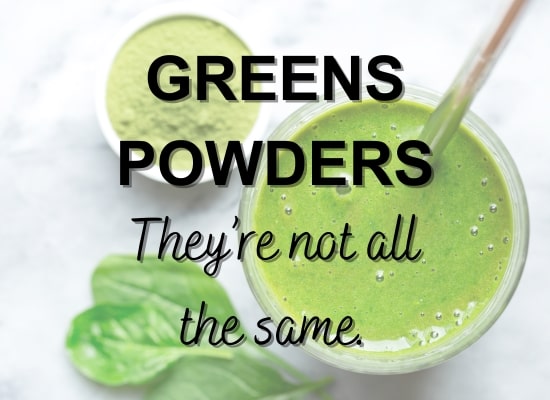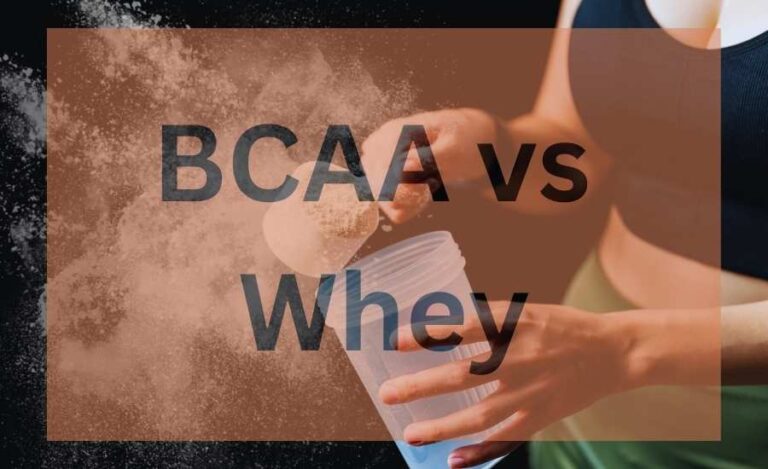Garden of Life vs Vital Proteins Collagen supplement review and comparison, Australia.
I feel like once we hit 40 we suddenly start noticing those fine lines and unwanted texture on our skin. Which can make some of us feel like time is getting away from us. For many of us, hair starts to thin out as well, especially on the sides. For women and men with finer hair, it can be particularly frustrating as we already don’t have a lot to spare. When it starts falling out and thinning it can be quite panic-inducing.
In this review of Garden of Live collagen peptides vs Vital Proteins, I want to share with you how it helped me. And which one I found better along with feedback from my personal training clients who also took my advice and got on it in the past few years.
In recent years I have tried various brands of collagen supplements, oral and topical and I can honestly say it has definitely turned things around for me.
Aside from the obvious benefits of hair, skin, and nails, I want to focus on one other important benefit of collagen supplements. The benefit of collagen for people who lift weights and want to optimise their recovery. And those who want to support their joints and connective tissue as mature gym goers.
A lot of reviews out there don’t mention a lot on this topic. Being a fitness trainer for over 15 years, it’s part of my job to look at supplementation for muscle and overall physique development.
Table of Contents
Firstly, what is collagen and what happens to it as we age?
Benefits of collagen peptides powder.
What type of Collagen do you need for skin, hair and joints?
Do you need to take collagen supplements every day for it to work?
Garden of Life collagen peptides vs Vital Proteins, so which one is better?
How soon can you see visible results from taking collagen supplements?
Liquid collagen vs collagen peptides in powder form.
Collagen powder or collagen capsules and pills, which one is better?
When it comes to wrinkles, which is better topical or oral collagen?
How does collagen support weight lifting and muscle recovery?
What are the side effects of taking collagen supplements and can you overdose on collagen supplements?
Can taking collagen supplements cause scleroderma?
Bovine vs marine collagen: Which one is better?
Do most protein powders already contain collagen?
Is bone broth better than collagen powder supplement?
1. Firstly, what is collagen and what happens to it as we age?
Collagen is a protein that makes up 70% of your skin structure. It is part of the building blocks in most of our bodies. After the age of 25, our body slows down the production of collagen and you lose up to 1% of collagen per year. So by the age of 40 you could potentially have lost about 15% of your collagen.
On top of that collagen production slows down by about 25% from your mid-20s onwards. That explains why our skin becomes less bouncy and more wrinkly as the years go by. Collagen is made up of non essential amino acids, meaning that it can be produced by our body.
There is collagen virtually in most of our body parts from bones, ligaments, connective tissue, organs, and of course skin, nails, and hair. Our body generally produces collagen itself, but we lose that collagen production as we age. We need more help to build it back up from different sources whether it would be animal products or collagen supplementation.
Often high protein foods especially beef, bone broth, and fish can help increase collagen in our body. But it is difficult to be consistent with eating these things on a daily basis unless you are very disciplined with your diet. So many people opt for an easy solution, collagen peptide supplements.
2.Benefits of collagen peptides powder.
In clinical trials, collagen peptides have been shown to:
- Reduce eye wrinkle volume by up to 49 percent.
- Increase skin elasticity by up to 40 percent.
- Increase skin hydration by up to 28 percent.
- Improve skin texture.
- Promote healthy hair and speeds up hair growth.
- Increase skin thickness for resilience and plump appearance.
- Increase the quantity and activity of fibroblasts (the cells that make collagen and elastin).
- Decrease collagen fragmentation by up to 31 percent.
- Increase bone density.
- Relieve join information and eases the pressure put on cartilage during intense workouts like jumping or heavy lifting.
- Help speed up muscle repair after training.
- Help regenerate muscle fibers.
- Can help improve the immune system.
3.What type of Collagen do you need for skin, hair and joints?
Firstly there is collagen that can be derived from cows’ bones which is called Bovine collagen and ideally. You want to source high-quality grass-fed pasture-raised bovine collagen that contains no less than 10 grams of protein, specifically collagen protein. Because collagen is a type of protein, but it is not a complete protein.
There are various types of collagen, but not all are the most effective for skin health and overall health. The two main collagen types that are best for skin, hair, and connective tissue as well as joints are type I and type III. First, you need to make sure that the collagen supplement you are getting is abundant in these two types of collagen and has the right amounts of it.
4.Do you need to take collagen supplements every day for it to work?
Yes, collagen peptide supplements need to be taken consistently for it to work and to keep your collagen levels up. So taking it at a particular time of the day perhaps alongside your other supplementation if you take some would be ideal.
I usually take my collagen, magnesium, immune support, and glucosamine before bed, that way I remember to take it every night. You can also take it in the morning if that works better for you. Just keep in mind that if at times you are rushing out the door you might forget to take it or not have enough time. If you are a busy person like me you might want to try the evening routine.
You will generally start noticing some changes to your skin, hair, and nails in around 60-90 days, so be patient and consistent. As for joint mobility and lubrication, you might see some improvement in as little as 3-5 weeks.
5. Garden of Life collagen peptides vs Vital Proteins, so which one is better?
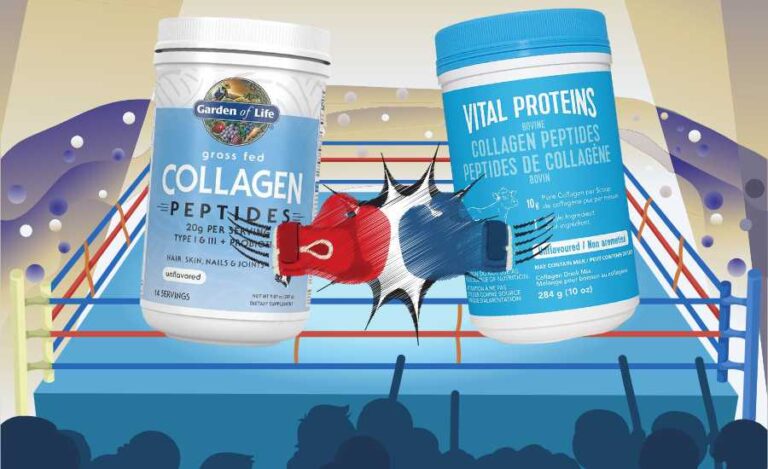
Here’s how the two brands compare to each other. In the table below I will compare two types of both brands, Bovine Garden of Life collagen peptides vs Vital Proteins and Marine version of both brands.
One thing to keep in mind is that if you buy a small container 284g of Vital Protein powder, the recommended serving is 10g and it comes with a small scoop to measure out 10g. But the Garden of Live Collagen powder serving is actually 20 grams of collagen per serving, so the scoop is twice as large.
If you want to get like for like the amount of collagen per serving then you would need 2 scoops of Vital Proteins to make it equal to 1 scoop of Garden of Life serving. But the amount of collagen per container is very similar.
Both brands have an Unflavoured version and it’s pure collagen without any additives or fillers so in terms of quality, they are equally good and popular in Australia. Both have a 4.5-star rating. You can also find some different flavors in both brands if you prefer chocolate, coffee, or vanilla. You could then add it to your protein shake. Because remember collagen isn’t a complete protein.
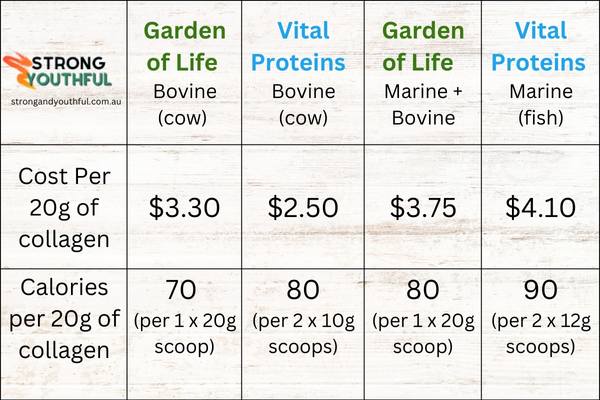
The Verdict:
If you can eat meat and ok with cow bone-sourced collagen then Vital Proteins 284g container is the best value for the money making it a good choice if you wish to start with just a smaller container which will last you 2 weeks.
Remember you need to take the collagen for at least 45-90 days to see the difference. So I would order at least 2 or 3 containers to make sure you don’t have a gap while you reorder the next lot. Garden of Life brand will come in a little more expensive generally even at discount stores if you measure out per serving of actual collagen content.
So when comparing Garden of Life collagen peptides vs Vital Proteins, the only difference is in price, and at the time of writing this article Vital Proteins wins.
Vital Proteins collagen peptides come in pure form and the unflavoured version contains 100% collagen peptides and nothing added. It contains no artificial flavours and if you specifically get the unflavoured version then it’s unnoticeable in your drink or liquid of choice. It can be added to cold liquids or hot liquids. I love adding it to my cup of tea in the evening, so plain unflavoured version is a good option for me.
I have done the work for you and found the cheapest merchants on Amazon that sell these 2 brands at discounts, you can go directly to the products here.
Vital Proteins Bovine Collagen Peptides – 14 serving container. (remember you will need to use 2 x 10g scoops to make it equal to the Garden of Life 20g serving scoop)
Garden of Life Bovine Collagen Peptides – 14 serving container.
6. How soon can you see visible results from taking collagen supplements?
Most collagen supplement users notice differences in their skin elasticity, reduction of wrinkles, improved hair thickness and stronger nails after consistently taking collagen peptide supplements for at least 90 days.
Many have noticed a reduction in joint pain after just 45 days of consistent supplement ingestion.
7. Liquid collagen vs collagen peptides in powder form.
Both have been found equally effective, so it comes down to price, purity of the supplement, convenience and your personal preference.
Powder collagen is more economical and often cheaper even though the quality is just as good.
Liquid collagen comes in the form of pre-mixed drinks or shots or even added to ready-to-drink protein shakes or protein water and because it is ready to go in individual serving sizes it can be a bit more expensive.
So if you want to save money collagen peptides in powdered form will save you a few bucks. The great thing about unflavoured powdered collagen is that it can be easily added to any choice of beverage or even just warm or cold water.
Garden of Life collagen peptides vs Vital Proteins in liquid form:
Unfortunately, the only liquid form is currently available in US, but not Australia and Garden of life doesn’t offer liquid form at all.
8. Collagen powder or collagen capsules and pills, which one is better?
There is no difference when it comes to effectiveness. Collagen pills or capsules are simply the same supplements encapsulated or pressed into a pill. You might find that pills and capsules are a little more expensive and less versatile when it comes to adding them to your hot drinks or a cold beverage.
On the flip side, it could be more convenient if you are on the go or need to take it with you for travel. So all you need to consider is what suits you better for your lifestyle.
9. When it comes to wrinkles, which is better topical or oral collagen?
Oral collagen has undergone more comprehensive controlled studies and is one of the most researched supplements on the market.
The additional benefit of taking collagen peptides in oral form is that you will also see benefits in your hair and joints, while with topical collagen it would only be effective for that area you are applying it to.
There are other topical serums that have been shown to help promote collagen production topically such as vitamin C, retinol, and hyaluronic acid.
My personal preference based on my in-depth research over the years is to take collagen supplements orally and use the above-mentioned serums on my skin topically in the morning and at night.
10. How does collagen support weight lifting and muscle recovery?
Firstly, collagen being the most abundant protein in our body provides support to the body’s connective tissues, including tendons and ligaments. During weight lifting, our connective tissues bear a significant amount of stress as they attach the muscles to the bones.
Collagen helps us to strengthen and maintain the integrity of these tissues, reducing the risk of injuries such as strains and tears. By supporting the connective tissues, collagen enables us to lift heavier weights and engage in intense workouts. And it helps reduce risk of damage, thus enhancing our overall performance.
Secondly, collagen supports our muscle recovery by promoting tissue repair and regeneration. After an intense workout, the muscle fibres undergo micro-tears, leading to muscle soreness and fatigue.
Collagen is an essential component of the extracellular matrix, which surrounds and supports muscle fibres. It provides a scaffold for the growth of new cells and tissues during the recovery process.
By incorporating collagen into our diet or supplementation routine, we can enhance the body’s ability to repair damaged muscle fibres. As well as reduce recovery time, and support overall muscle growth and development. This enables us to bounce back faster from intense workouts, leading to better muscle tone and an increase in lean muscle mass.
11. What are the side effects of taking collagen supplements and can you overdose on collagen supplements?
Collagen supplements are generally considered safe without any adverse side effects. But like any supplement, it’s important to follow the recommended dosage instructions. More is not always better. Collagen is a protein, and excessive intake of any protein, including collagen, can potentially strain the kidneys and liver.
However, the likelihood of overdosing on collagen supplements is relatively low. You would need to take the excess dosage for prolonged periods of time to make you feel unwell or impact your health.
It’s important to note that collagen supplements are not regulated as strictly as pharmaceutical medication, so the quality and purity of different products may vary.
Always aim to choose good quality and check with your health care provider to make sure you don’t have any health conditions that need to be considered before taking any supplement
12. Can taking collagen supplements cause scleroderma?
What is scleroderma? Scleroderma is a chronic autoimmune disease that affects the connective tissues in the body. It is characterized by the excessive production and accumulation of collagen, in various tissues and organs. This abnormal collagen deposition leads to thickening, hardening, and scarring of the affected tissues.
If you notice that your skin is starting to feel too tight you might need to get some blood tests done or try to back off on the dosage of the collagen supplementation.
There is currently no scientific evidence suggesting that collagen supplementation increases the risk of developing scleroderma.
Scleroderma is an autoimmune disease characterized by abnormal collagen production and accumulation in various tissues, and its causes are complex and multifactorial. While collagen supplements contain collagen protein, which is abundant in our body, there is no direct link between collagen supplementation and the development of scleroderma.
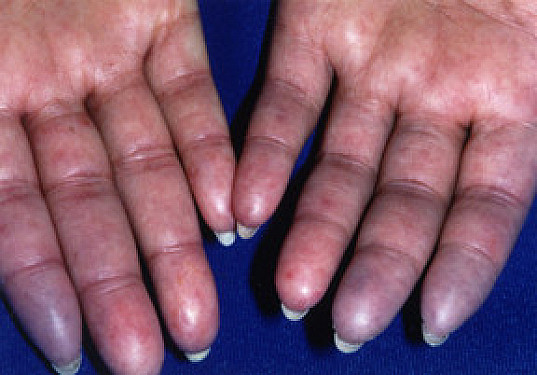
Image source Harvard Health Publishing. https://www.health.harvard.edu/a_to_z/scleroderma-a-to-z
13. Bovine vs marine collagen: Which one is better?
The choice between bovine and marine collagen ultimately depends on individual preferences and dietary restrictions. Here are some key considerations for each type:
Bovine Collagen:
- Source: Bovine collagen is derived from cows, typically from their skin, bones, or cartilage.
- Collagen Types: Bovine collagen is rich in Type I, II and Type III collagen, which are the most abundant types found in our skin, tendons, ligaments, and bones.
- Bioavailability: Bovine collagen peptides are easily absorbed by the body.
- Cost: Because bovine collagen is a bit cheaper to source it’s more affordable.
- Taste: Some people may find bovine collagen to have a slight taste or odor, although flavored options are also available.
Marine Collagen:
- Source: Marine collagen is sourced from fish, typically from their skin and scales.
- Collagen Types: Marine collagen is primarily composed of Type I collagen, which is highly beneficial for skin health.
- Bioavailability: Marine collagen is known for its smaller particle size, making it easy to absorb also.
- Sustainability: Fish-derived collagen may be a preferable choice for individuals concerned about environmental sustainability, as it can be sourced from fish by-products that would otherwise be wasted.
- Cost: typically marine collagen is more expensive.
- Allergies: Individuals with fish allergies should avoid marine collagen.
Multisource Collagen:
- Source: A mix of bovine and marine collagen.
- Collagen Types: I and III, sometimes type II is also present which has additional benefits for our bones and connective tissue.
- Cost: the cost is usually somewhere in between pure Bovine and pure Marine, so if you want the best of both worlds you can opt for multisource type.
- Allergies: Individuals with fish allergies should avoid marine collagen.
14. Do most protein powders already contain collagen?
No, most protein powders don’t contain the correct amino acid content for adequate collagen supplementation unless it is specified. Even then you need to make sure that you are getting enough as it could be underdosed and not very effective.
Just because something says it has added collagen to it, doesn’t mean that it has enough to make a difference.
The same goes for all other things that claim to have added collage to it, such as protein bars. So always check the labels and look for a minimum 10g of collagen peptides per serving with types I and III collagen.
It is actually difficult to find a good quality complete protein powder supplement that contains enough collagen so most athletes and exercise enthusiasts add collagen supplements to their protein powder.
15. Is bone broth better than collagen powder supplement?
Bone broth is also a fantastic source of collagen,
Bone broth contains extra nutrients that aren’t found in pure collagen supplements, making it a potentially better option for enhancing your overall health and well-being. However, collagen may be a more convenient choice and since you can add it to pretty much anything you may be more likely to take it consistently.
Yes, you can have bone broth daily and a serving of collagen powder in your smoothie, it won’t do any harm, but will ensure you get maximum benefits from both.
You can check out our recommendations for great quality Australian bone broth below.

